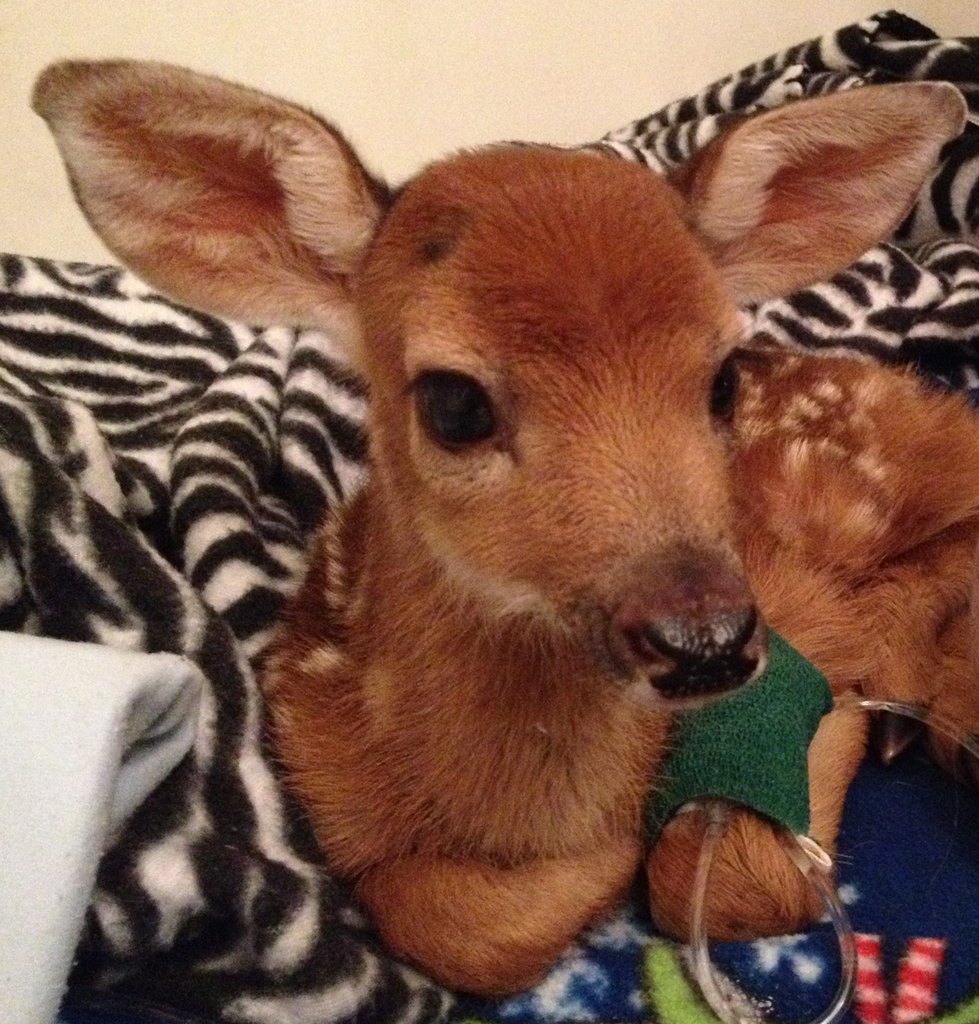By Yvonne | Project Leader
If only we didn't need to sleep! This is something we often exclaim during the busy spring and summer at Fellow Mortals. People have asked if we know how many steps we take in a day, since we move and walk nearly non-stop for up to 19 hours during our longest shifts.
Fellow Mortals is one of the largest and busiest wildlife hospitals in the nation,. Open 365 days a year, including holidays, the animals brought to us for care stay on site from initial admit to release. Some patients' stays are relatively short; others can last more than a year. Our hospital covers nearly 5,000 square feet of purpose-built clinic space, with another four acres of specialized habitats outdoors. Preparing food, feeding babies, cleaning kennels or scrubbing pools, taking x-rays, mopping, doing laundry, returning phone calls and meeting new people--it's all in every day's routine.
Summer 2014 has been exceptionally and unusually busy for us. As I write at the peak of our season, we have over 400 animals in care of dozens of species, including ground squirrels, purple martins, rabbits, ducklings, hummingbirds, goslings, owlets, gulls and deer. Every species of animal has come in greater numbers than in years past, meaning that it takes many more people-hours to care for them all.
In addition to the over 2,000 animals who will find their way into our care this year--the majority of which will be successfully returned to the wild, at least that many more have been kept with their wild parents as a result of education and advice given to caring people who called for help when they found what they believed was an orphaned animal.
Why are we so busy? Many species of wildlife are thriving, even as habitat is lost to development, but the real reason we are busier than ever is because the number the wildlife rehabilitators has been decreasing steadily since the 'boom' of rehabilitators entering the field in the 1980's, when Fellow Mortals first opened its doors. Looking just within a 30-mile radius of our hospital, where there were once 15 licensed wildlife rehabiliators, only five remain.
We are concerned about the loss of professionals in our field, especially because awareness and concern for wildlife and the environment mean that the services rehabilitators provide are needed more than ever. While the internships we offer during the summer are vital to providing care for the hundreds of orphans brought to us, they are also very important in terms of providing an opportunity for interested people to gain exposure and experience in the field. Since 1992, 66 interns have amassed over 80,000 hours of hands-on experience with injured and orphaned wildlife through Fellow Mortals' internship program. Some of these alumni have become rehabilitators, some veterinarians, others work in zoos or aquariums and some are doing research. Regardless of their profession, they have all become advocates for wildlife and the environment.
If you're reading this report, it's because you've made a gift to support our mission, a mission that includes helping to train the wildlife rehabilitators of tomorrow.
Thank you for supporting our work.
Project reports on GlobalGiving are posted directly to globalgiving.org by Project Leaders as they are completed, generally every 3-4 months. To protect the integrity of these documents, GlobalGiving does not alter them; therefore you may find some language or formatting issues.
If you donate to this project or have donated to this project, you can receive an email when this project posts a report. You can also subscribe for reports without donating.
Support this important cause by creating a personalized fundraising page.
Start a Fundraiser